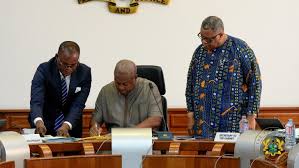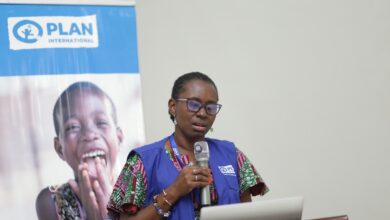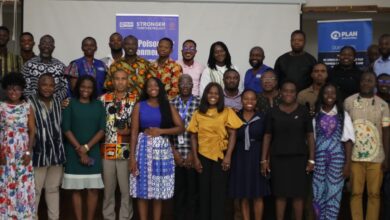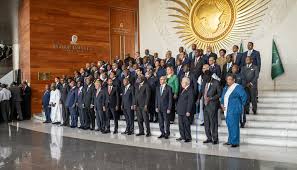Ghana’s WASH future lies in innovation, partnerships that are intentional and accountable – Local Government Minister
Ghana’s WASH future lies in innovation, partnerships that are intentional and accountable - Local Government Minister
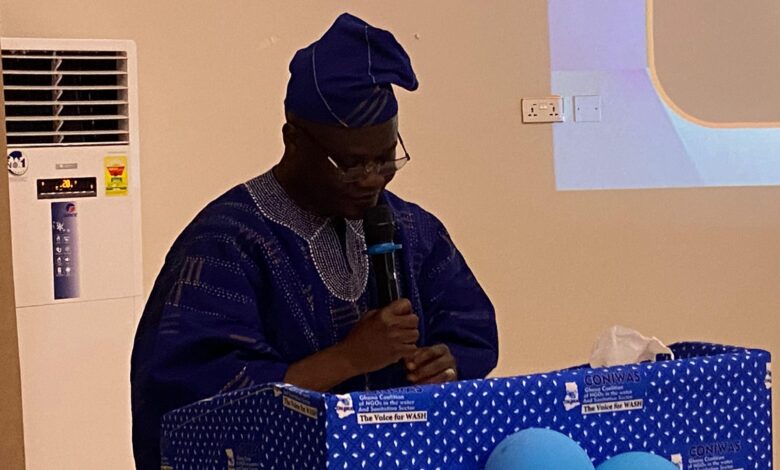
Minister for Local Government, Chieftaincy and Religious Affairs, Mr. Ahmed Ibrahim, says Ghana’s Water, Sanitation and Hygiene (WASH) lies in innovation that works for the poorest, partnerships that are intentional, accountable, harmonized systems, regulated services, empowered local authorities, enhanced private sector participation, and a culture where evidence and data guide decisions.
The Local Government, Chieftaincy and Religious Affairs Minister, addressing participants at the 36th edition of the Mole Conference Series held annually on Water, Sanitation, and Hygiene (WASH), explained that the future of sanitation, water, and hygiene will not be in fragmented efforts, not in isolated pilots, not in uncoordinated projects or one-off initiatives. But rather in harmonized systems, regulated services, empowered local authorities, enhanced private sector participation, and a culture where evidence and data guide decisions.
“It lies in innovation that works for the poorest, and partnerships that are intentional and accountable,” he reiterated.
According to Mr. Ahmed Ibrahim, even though the country has undoubtedly made commendable progress over the years, Ghana still faces significant WASH challenges. Urbanization is moving faster than infrastructure.
“Yes, we have strengthened the institutional role of MMDAs in water, environmental health, and sanitation delivery. We have enhanced collaboration with partners on ODF achievement, school and health WASH facilities, and urban sanitation improvements.
We have piloted innovative solutions across districts, from container-based sanitation in low-income communities in Kumasi, to digital desludging platforms in Tamale, to youth-led waste entrepreneurship in Sekondi-Takoradi.
We have seen traditional leaders, especially queen mothers and community chiefs, support behavioural change, protect water bodies, and lead community clean-up actions.
And we have witnessed community-driven efforts, such as in Sawla-Tuna-Kalba, Tolon, Bawku West, Agona Nyakrom, and Cape Coast, where citizens are working with their district assemblies to achieve sanitation improvements.
These successes demonstrate that change is possible when strategy meets collaboration and when communities take ownership. But we must acknowledge that despite this progress, Ghana still faces significant WASH challenges. Urbanization is moving faster than infrastructure.
Climate impacts are visible in our communities, flooding in Accra and Kumasi, coastal erosion here in Gomoa-Fetteh, and prolonged dry seasons in the north affecting water security. Informal settlements continue to struggle with access to basic sanitation.
We still see open dumping of waste and drains choked with plastics. We still have gaps in data collection, data use, and evidence-based planning.
Some MMDAs lack adequate technical capacity, logistics, and financing to meet growing water and sanitation demands. The private sector is operating, but not yet at the scale required. The health burden from poor sanitation and inadequate water remains significant, contributing to avoidable diseases and preventable deaths,” he maintained.
The Minister further continued, “Ladies and Gentlemen, you all will agree with me that these challenges are not failures, they are lessons. They remind us that the next phase of Ghana’s WASH journey requires stronger systems, firmer regulation, smarter investment, deeper accountability, and more innovation.
It tells us that we need to see sanitation and water as a service, requiring a long-term economic and health investment.”
He said the Ministry of Local Government, Chieftaincy and Religious Affairs remains committed to leading this transformation. Assuring the gathering that, the President of Ghana, H. E. John Dramani Mahama, has been clear in his direction by making sanitation a national priority.
“We, therefore, reaffirm our commitment to strengthening regulatory frameworks, empowering local government structures, ensuring that sanitation laws are enforced fairly and consistently, and building systems that incentivise performance.
We will accelerate reforms that modernise our Environmental Health and Sanitation workforce and enhance district-level planning, monitoring, and evaluation.
We will deepen decentralization by ensuring MMDAs are better resourced, more accountable, and more responsive to community needs, and above all, we will continue to champion the principle that sanitation is everyone’s business, from households to private businesses, from traditional authorities to development partners.
Innovation will be a defining pillar of our strategy, which will include the use of technology, new financing models, new partnerships, new accountability systems, and new behavioural change approaches. We must strengthen market-based sanitation solutions and support young entrepreneurs who are creating jobs in waste recycling, composting, toilet construction, waste logistics, sanitation marketing, and water vending.
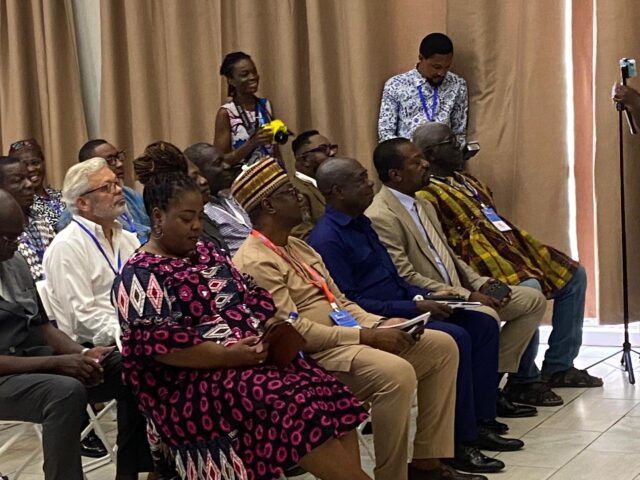
In Madina, waste collectors have been organised into digital cooperative systems, improving efficiency and income. Some districts are using digital payments for toilets, and it is improving sanitation service reliability and transparency.
These examples should become the rule, not the exception. We need to scale them, finance and institutionalise them.
Ladies and Gentlemen, A modern WASH sector cannot run on assumptions. We need data that is current, accurate, and shared.”
The biggest annual WASH event, currently underway in Gomao-Fetteh in the Central Region, is being attended by over 200 participants drawn from government agencies, academia, International and local Non-Governmental Organizations (NGOs), health professionals, traditional leaders, and the media.
The Mole Conference series, which represents not just an annual tradition, but a vital platform where policy, practice, innovation, and accountability converge to shape the future of Ghana’s WASH sector is organized by CONIWAS and supported by WaterAid Ghana, World Vision Ghana, Plan International Ghana, UNICEF, the World Bank, and, the Ministry of Local Government Chieftaincy and Religious Affairs (MLGCRA), and Ministry of Works, Housing and Water Resources (MWHWR), among others.
The 36th edition of the Mole Conference Series, which was chaired by the Paramount Chief of Gomoa Fetteh, Nana Abor-Attah II, was on the theme “Advancing Innovation, Partnerships and Evidence for a Harmonized and Regulated WASH Sector in Ghana.”
The annual Mole WASH Conference is a CSO-led multi-stakeholder platform aimed at reviewing sector performance, influencing policies, removing barriers, and promoting access to sustainable Water, Sanitation, and Hygiene services.

